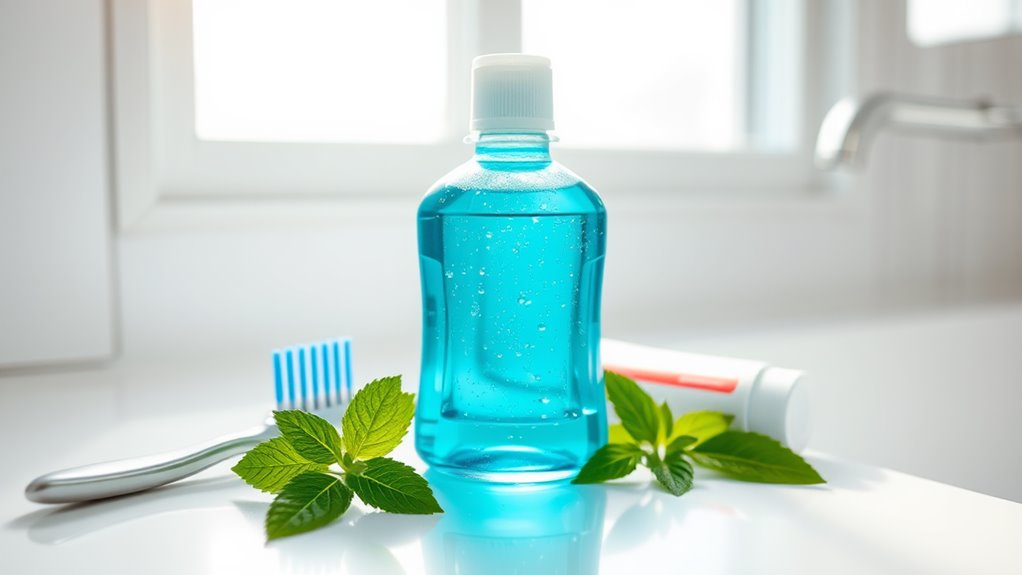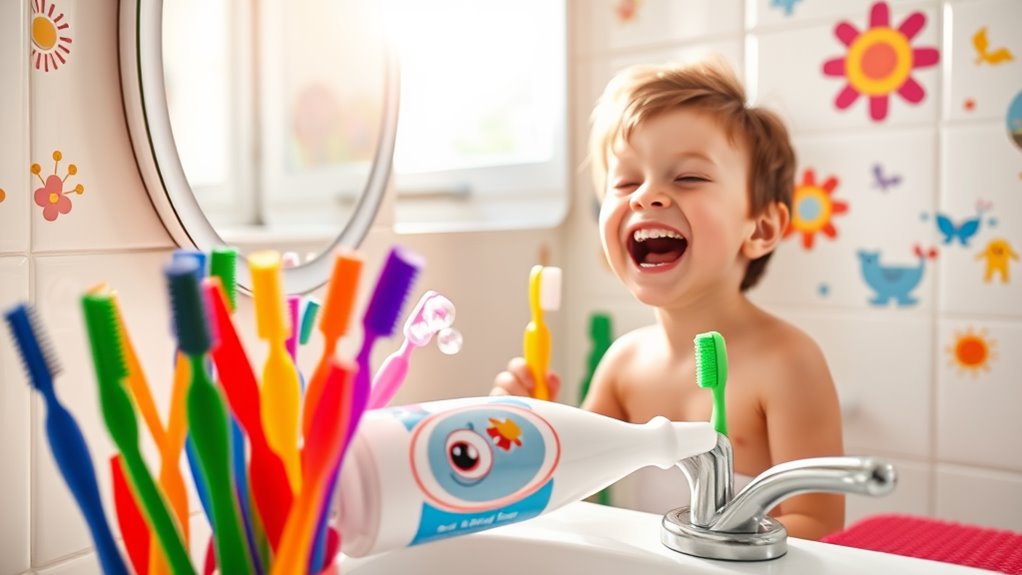The Truth About Mouthwash- Do You Really Need It.
Did you know that nearly 75% of Americans use mouthwash regularly? While many believe it’s essential for maintaining oral health, the reality is more nuanced. Mouthwash can offer benefits, but it also comes with potential drawbacks that might surprise you. So, is it truly necessary for your oral hygiene routine? Let’s explore the facts and help you make an informed decision.
Key Takeaways
- Mouthwash can enhance oral hygiene by reducing plaque, freshening breath, and preventing gum disease when used alongside brushing and flossing.
- Some mouthwashes contain alcohol, which may cause dry mouth or irritation, so alcohol-free options are preferable for sensitive individuals.
- Therapeutic mouthwashes provide additional benefits, such as fluoride for enamel strengthening and antimicrobial properties for better gum health.
- Overreliance on mouthwash without proper brushing and flossing is ineffective and may disrupt the natural oral microbiome.
- Natural alternatives like saltwater or essential oil rinses can also promote oral health without the potential drawbacks of commercial mouthwashes.
What Is Mouthwash and How Does It Work?
Have you ever wondered what mouthwash really is and how it contributes to your oral hygiene?
Mouthwash is a liquid solution designed to rinse your mouth, providing several benefits.
Its primary ingredients typically include antimicrobial agents, flavoring, and alcohol or alternatives that help reduce oral bacteria.
Mouthwash facts reveal that it can aid in freshening breath, reducing plaque, and preventing gum disease when used as part of a comprehensive oral care routine. Additionally, some alcohol-based mouthwashes can disrupt the oral microbiome, potentially leading to unwanted side effects.
While it shouldn’t replace brushing and flossing, mouthwash can enhance your efforts, offering an additional layer of protection for your teeth and gums.
Benefits of Using Mouthwash
Using mouthwash offers multiple benefits that can significantly enhance your oral hygiene routine. It helps reduce plaque buildup, which can lead to gum disease and cavities. Additionally, mouthwash can eliminate bad breath by killing odor-causing bacteria, leaving your mouth feeling fresh. Many formulations contain fluoride, which strengthens enamel and protects against decay. Regular use can also reach areas that brushing and flossing might miss, ensuring a more comprehensive clean. Furthermore, some mouthwashes provide antibacterial properties that promote overall gum health. However, it’s important to remember that mouthwash is a supplement to brushing and flossing, not a replacement.
Potential Drawbacks of Mouthwash
While mouthwash can enhance your oral hygiene routine, it’s important to consider potential drawbacks as well.
Some formulations contain alcohol, which can lead to dry mouth and irritation of sensitive tissues. Overuse may disrupt your natural oral microbiome, potentially increasing the risk of dental issues. Additionally, certain mouthwashes may contain artificial sweeteners and dyes, raising concerns for some users. If you’re using mouthwash as a substitute for brushing or flossing, you mightn’t achieve optimal oral health. It’s essential to remember that effective brushing and flossing are crucial practices for maintaining oral hygiene.
Always consult with your dentist to ensure you’re making the best choices for your specific dental needs and overall health.
Types of Mouthwash Available
When it comes to mouthwash, you have two main types to consider: therapeutic and cosmetic.
Therapeutic mouthwashes contain active ingredients aimed at improving oral health, while cosmetic options primarily help freshen breath. Understanding these differences can help you choose the right product for your needs. Additionally, therapeutic mouthwashes can reduce plaque formation and gingivitis, making them a valuable part of your oral hygiene routine.
Therapeutic Mouthwashes Explained
Therapeutic mouthwashes serve as powerful tools in oral care, addressing specific dental issues beyond freshening breath.
These mouthwashes contain active ingredients designed to improve oral health.
Here are three types you might consider:
- Fluoride Mouthwashes: Help strengthen enamel and prevent cavities.
- Antimicrobial Mouthwashes: Reduce plaque and gingivitis by targeting harmful bacteria.
- Desensitizing Mouthwashes: Alleviate tooth sensitivity through specific compounds.
Incorporating the right therapeutic mouthwash into your routine can enhance your dental care, addressing problems that brushing and flossing alone may not fully solve.
Always consult your dentist before choosing a therapeutic option.
Cosmetic Mouthwash Benefits
In addition to therapeutic options, cosmetic mouthwashes offer benefits that focus primarily on enhancing your smile and freshening breath.
These products often contain ingredients like flavoring agents and essential oils to mask bad breath, making your mouth feel clean and refreshed.
While they don’t address underlying dental issues, they can boost your confidence during social interactions.
Some cosmetic mouthwashes even contain whitening agents to help reduce surface stains on teeth, improving your overall appearance.
However, it’s essential to complement their use with regular oral hygiene practices for optimal dental health.
Alternatives to Mouthwash
If you’re looking for alternatives to mouthwash, several natural remedies can help maintain freshness.
You might find that effective DIY mouth rinses, such as saltwater or baking soda solutions, offer similar benefits without the chemicals. Oil pulling is another option that can enhance your oral hygiene routine while being gentle on your mouth.
Natural Remedies for Freshness
Many people seek alternatives to commercial mouthwash for maintaining oral freshness, and natural remedies can be effective options.
Here are three you might consider:
- Saltwater Rinse: Mixing salt with warm water can help reduce bacteria and soothe gums.
- Baking Soda: This natural abrasive can neutralize odor and balance pH levels in your mouth.
- Essential Oils: Oils like peppermint or tea tree can provide antimicrobial benefits; just dilute them in water before use.
Incorporating these remedies into your routine can enhance your oral hygiene while avoiding the chemicals found in many mouthwashes.
Effective DIY Mouth Rinses
Creating effective DIY mouth rinses can be a simple and cost-effective way to support your oral health.
One popular option is a saltwater rinse, which can reduce inflammation and kill bacteria. Mix one teaspoon of salt in a cup of warm water and swish for 30 seconds.
Another effective rinse involves diluted apple cider vinegar; mix one tablespoon with a cup of water for a natural antibacterial solution.
For fresh breath, combine one teaspoon of baking soda with a cup of water.
These alternatives can help maintain oral hygiene while being gentle on your budget and free from artificial additives.
Assessing Your Oral Hygiene Needs
How do you determine the right oral hygiene routine for your needs?
Start by assessing your individual factors.
Consider these key elements:
- Diet: High-sugar or acidic foods can increase plaque and cavities, necessitating more rigorous care.
- Dental History: If you’ve had cavities or gum disease, you may benefit from additional treatments, like mouthwash.
- Lifestyle Choices: Smoking or dry mouth can affect your oral health, requiring tailored solutions. Additionally, oral bacteria play a significant role in fresh breath, so understanding their impact is crucial for your routine.




